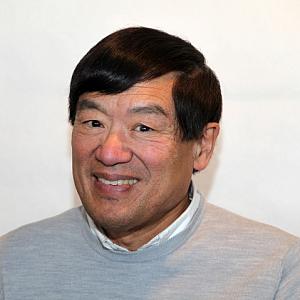
Collin Tong
Correspondent

Correspondent
Collin Tong is a correspondent for Crosscut News and University Outlook magazine, and Seattle-based stringer for the New York Times. Prior to his current journalistic work, Collin was senior director of communications for Washington State University, visiting lecturer at the Edward R. Murrow College of Communication at WSU, and public affairs director at the Alliance for Education. He served as a Peace Corps Volunteer in Thailand, taught East Asian History at Lone Mountain College in San Francisco, and was a member of the National Peace Corps Association board of directors. A former Michele Clark Fellow at the Robert C. Maynard Institute for Journalism Education's 1976 Summer Program for Minority Journalists, he is the recipient of awards from the Washington World Affairs Council, Fund for Journalism on Jewish Life, Washington Press Association, and Council for Advancement and Support of Education. In 2012, Collin received the University of Redlands' Distinguished Alumni Achievement Service Award. He is the author of Into The Storm: Journeys With Alzheimer's, which will be published in January 2014. He serves on the International Service Committee of the Rotary Club of Seattle, advisory committee for the nonprofit global health organization Village Health Works, and Chancellor's Advisory Council for Seattle Community Colleges.

Navigating the challenges of caring for a loved one with dementia or Alzheimer’s disease need not be a solitary journey. It is impossible to surmount the hurdles without reaching out to others.

Village Health Works has rebuilt a war-torn Burundian village, teaching community members who used to kill each other to instead care for one another. Seattle's global health community is on board.

Katie Forgette's new play, which has debuted in Seattle, captures the reality of life in adult homes. And it says a lot about political policy and philosophy.

A recent report highlighted a stark reality: Many of the budget cuts under consideration in Olympia will affect minorities the most.

The federal Affordable Care Act will likely help many immigrants, but questions and hurdles remain. And minority populations start from a big deficit on health insurance.
<p>Battelle Centers for Public Health Research and Evaluation, and University of Washington scientists say an inexpensive laboratory test can spot many cases of autistic spectrum disorder [ASD] in many cases, which should lead to earlier intervention and treatment.</p>

<p>We may have plenty of clean water for our own needs, but if anything that has only spurred more interest in helping the rest of the world.</p>
<p>A coalition of local and global health groups have banded together to bring the lessons they've learned in developing countries to south King County, where the health index is as bad as Nairobi.</p>